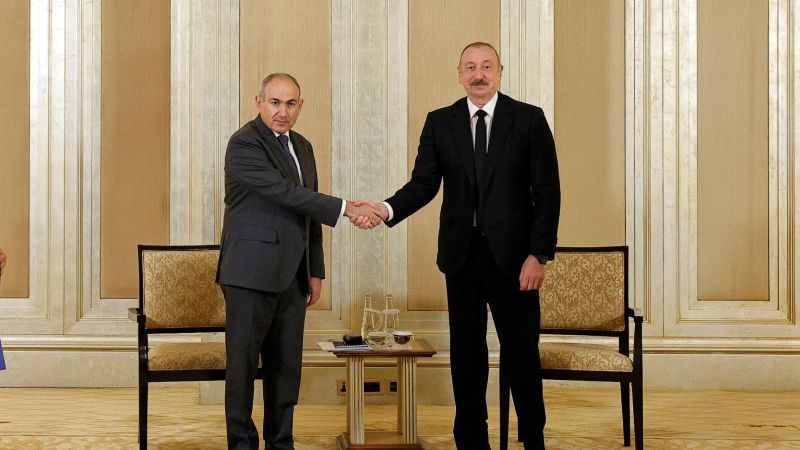In a significant diplomatic effort, President Donald Trump is set to welcome the leaders of Armenia and Azerbaijan to the White House on Friday. This meeting is anticipated to result in a landmark peace agreement that will grant the United States exclusive rights to develop a vital transit corridor in the South Caucasus. This corridor, which is said to be named the “Trump Route for International Peace and Prosperity” (abbreviated as TRIPP), is designed to enhance connectivity between the two nations while respecting Armenia’s sovereignty, as stated by White House Deputy Press Secretary Anna Kelly.
During this pivotal event, Kelly pointed out that the TRIPP corridor will facilitate unimpeded connections between Armenia and Azerbaijan. This initiative aims not only to foster cooperation between the two countries but also reinforces Armenia’s territorial integrity and the rights of its citizens. Trump also emphasized the importance of the agreements, announcing through social media that the United States would forge bilateral agreements with both nations, seeking to unlock the economic potential of the South Caucasus.
The agreements detail Armenia’s commitment to granting the U.S. long-term and exclusive access to develop this newly designated transportation route through its territory. Operating under Armenian legal jurisdiction, the project will entail the United States leasing land to a consortium tasked with the construction and management of the corridor, according to a senior administration official. This infrastructure link is expected to be a significant component of future economic development in the region.
In a further elaboration, the senior official indicated that working groups would commence operations immediately to finalize the details of the peace agreement. This strategic development is anticipated to unlock substantial potential in terms of trade, transit, and energy flows within the South Caucasus, promoting a more stable and prosperous environment in the region.
Additionally, during the meeting, leaders Pashinyan and Aliyev are expected to endorse a formal request to disband the Minsk Group, which has been historically responsible for mediating disputes between Armenia and Azerbaijan since its establishment in 1992. The group is co-chaired by various major powers, including France, Russia, and the United States.
The benefits of the upcoming agreements are poignant, as they signal the beginning of a new era in the relationships between the U.S., Armenia, and Azerbaijan. According to Kelly, “President Trump will sign deals with both Armenia and Azerbaijan that will unlock our relationships with each country and the region while benefiting American businesses.” This suggests a potential for substantial American engagement in the region’s economic landscape.
The Trump administration has recognized the strategic importance of the South Caucasus for several months, with formal negotiations set to begin next week to designate U.S. entities to oversee the operation of the transit corridor. The goal of these meetings includes the establishment of the TRIPP negotiating team, which underscores the structured approach toward implementation and execution of this ambitious project.
In a notable aspect, prior to the announcement, there was a surge of interest from various operators. An administration official noted receiving calls from different U.S. entities eager to engage in the development process of the corridor, reflecting a robust response from American businesses toward the opportunity presented by the TRIPP initiative.
The broader implications of this agreement are particularly significant, especially considering the historical context of the region, which has often been dominated by Russian influence. A senior official remarked that Trump’s approach has essentially removed the politics from the equation, allowing for a straightforward and sensible path forward for all parties involved.
Moreover, the trilateral signing of these agreements aligns with a broader geopolitical backdrop. This includes a deadline established by Trump for Russian President Vladimir Putin, as Trump seeks to prompt Russia to reevaluate its ongoing military actions in Ukraine. The developments in the South Caucasus may serve to reposition U.S. interests in the region while simultaneously applying pressure on Russia. In essence, the peace agreements managed by the Trump administration provide a multilateral framework poised for positive transformation in the geopolitical landscape of the South Caucasus.











